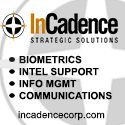
Bethesda, Maryland-based RightEye LLC, a health technology company using eye tracking to revolutionize vision performance and patient care, has developed two new eye-tracking tests to change the way doctors diagnose two very common and often misunderstood neurological disorders: autism and Parkinson’s disease.
Barbara Barclay, president of RightEye stated: “RightEye has consistently pioneered the use of eye-tracking technology to help solve some of health care’s greatest challenges. Acquiring these tests has implications that reach far beyond our business – as our eye movement technology platform will now enable parents, patients and providers to get the reliable and objective answers they need, when they need them, anywhere in the world, at a lower cost.”
Dr. Karen Pierce, an associate professor in the Department of Neurosciences at the University of California, San Diego and co-director of the UCSD Autism Center of Excellence, is the leading researcher in understanding autism. Pierce said: “In developing the GeoPref Autism Test, my goal was to make it easier, faster and more affordable to identify toddlers at risk for autism. By partnering with RightEye, I knew that I would be able to make my test more accessible to health care providers and parents of young children who are seeking answers about an often-misunderstood and late-diagnosed disorder.”
The RightEye Parkinson’s and Other Movement Disorders Test was developed by a team which included Dr. Mark Baron, professor of neurology, interim director of the VCU Parkinson’s and Movement Disorders Center and deputy director of the Southeast/Richmond Veteran’s Affairs Parkinson’s Disease Research, Education and Clinical Center at the Hunter Holmes McGuire VA Medical Center; Paul Wetzel, associate professor of biomedical engineering in the VCU School of Engineering and Dr. George Gitchel, associate director of research at the Southeast/Richmond PADRECC. This test was developed to accurately identify and assess patterns of eye movement that are affected in patients with movement disorders.
“We are excited to be working with RightEye to make better, more cost-effective screenings for Parkinson’s and other movement disorders available to more people around the world,” Baron said. “This is perhaps one of the most important developments in years to help us address the needs of patients with movement disorders.”
To learn more about RightEye, visit www.righteye.com.


